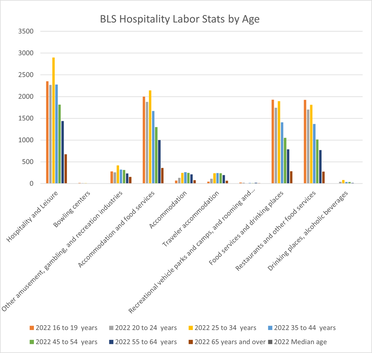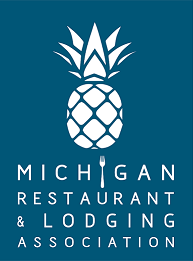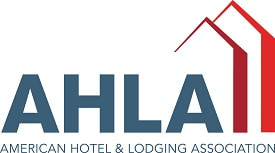Engaging and Advancing Justice-Involved Adults through Training, Employment, and Apprenticeship

HOPES (Hospitality Opportunities for People (re)Entering Society)
program partners with Departments of Corrections, community based
organizations, state restaurant associations and workforce
entities as part of a community collaborative model. These partner
organizations provide case management services and industry-recognized
credentials utilizing the National Restaurant Association Educational Foundation training framework focused on the competencies needed to enter the restaurant and hospitality industry.
HOPES helps justice-involved adults gain industry-specific skills, facilitates career exploration, and addresses barriers to sustained employment, with the ultimate goal of increasing employment opportunities and reducing recidivism for these individuals.
Each HOPES participant works with a case manager to develop an individualized plan. The case manager helps them to create a list of career goals and identify work-readiness and industry-specific training necessary to gain employment. HOPES participants will complete training, achieve at least one industry credential, and receive job placement to successfully graduate from HOPES.
As part of the Restaurant Ready initiative, HOPES is designed to help justice-involved adults:
WHY RESTAURANTS CAN HELP
Restaurant careers are accessible, diverse, and provide an array of opportunities. Careers in the restaurant and foodservice industry do not require a high school diploma, GED, licensure, or certification. Restaurants employ more minority managers than any other industry and 90 percent of all restaurant managers started in entry-level positions.
Restaurants need a well-trained workforce. Employers are looking for qualified staff familiar with new health and hygiene guidelines. HOPES participants receive ServSafe training which is widely recognized and fulfills many local requirements.
WHAT IS THE WOTC AND THE FBP?
The Work Opportunity Tax Credit (WOTC) is a federal tax credit available to employers who invest in American job seekers who have consistently faced barriers to employment. Employers may meet their business needs and claim a tax credit if they hire an individual who is in a WOTC targeted group. Employers must apply for and receive a certification verifying the new hire is a member of a targeted group before they can claim the tax credit. After the required certification is secured, taxable employers claim the WOTC as a general business credit against their income taxes, and tax-exempt employers claim the WOTC against their payroll taxes.
With the Federal Bonding Program (FBP), employers can receive fidelity bonds free of charge when hiring certain job applicants. The bonds reimburse the employer for any loss due to employee theft ($5,000 up to $25,000) and cover the first six months of employment at no cost to the job applicant or the employer ($0 deductible). Fidelity bonds can be applied to ANY job, ANY state, and to ANY employee (excluding a self-employed individual) who is paid wages and has Federal taxes automatically deducted. To date, FBP has issued over 50,000 bonds.
BENEFITS TO EMPLOYERS
The credit available ranges from $2,400 up to $9,600, depending on the targeted group and qualified wages paid to the new employee generally during the first year of employment. Generally, the credit is 40% of qualified first-year wages for individuals who work 400+ hours in their first year of employment.
HOW TO GET INVOLVED
The Michigan Restaurant & Lodging Association Educational Foundation (MRLAEF) will be hosting Industry Accelerator Meetings to provide interested businesses with an overview of the HOPES program, how to work with the Michigan Department of Corrections, and your community-based training organization.
For more information about the HOPES program and registering for Accelerator Meetings, visit mrlaef.org/hopes-program or contact Mario Gonzales at [email protected] or (517) 377-3922.
program partners with Departments of Corrections, community based
organizations, state restaurant associations and workforce
entities as part of a community collaborative model. These partner
organizations provide case management services and industry-recognized
credentials utilizing the National Restaurant Association Educational Foundation training framework focused on the competencies needed to enter the restaurant and hospitality industry.
HOPES helps justice-involved adults gain industry-specific skills, facilitates career exploration, and addresses barriers to sustained employment, with the ultimate goal of increasing employment opportunities and reducing recidivism for these individuals.
Each HOPES participant works with a case manager to develop an individualized plan. The case manager helps them to create a list of career goals and identify work-readiness and industry-specific training necessary to gain employment. HOPES participants will complete training, achieve at least one industry credential, and receive job placement to successfully graduate from HOPES.
As part of the Restaurant Ready initiative, HOPES is designed to help justice-involved adults:
- Gain industry-specific skills (including credentials)
- Explore industry career options
- Obtain employment
- Address barriers to sustained employment
WHY RESTAURANTS CAN HELP
Restaurant careers are accessible, diverse, and provide an array of opportunities. Careers in the restaurant and foodservice industry do not require a high school diploma, GED, licensure, or certification. Restaurants employ more minority managers than any other industry and 90 percent of all restaurant managers started in entry-level positions.
Restaurants need a well-trained workforce. Employers are looking for qualified staff familiar with new health and hygiene guidelines. HOPES participants receive ServSafe training which is widely recognized and fulfills many local requirements.
WHAT IS THE WOTC AND THE FBP?
The Work Opportunity Tax Credit (WOTC) is a federal tax credit available to employers who invest in American job seekers who have consistently faced barriers to employment. Employers may meet their business needs and claim a tax credit if they hire an individual who is in a WOTC targeted group. Employers must apply for and receive a certification verifying the new hire is a member of a targeted group before they can claim the tax credit. After the required certification is secured, taxable employers claim the WOTC as a general business credit against their income taxes, and tax-exempt employers claim the WOTC against their payroll taxes.
With the Federal Bonding Program (FBP), employers can receive fidelity bonds free of charge when hiring certain job applicants. The bonds reimburse the employer for any loss due to employee theft ($5,000 up to $25,000) and cover the first six months of employment at no cost to the job applicant or the employer ($0 deductible). Fidelity bonds can be applied to ANY job, ANY state, and to ANY employee (excluding a self-employed individual) who is paid wages and has Federal taxes automatically deducted. To date, FBP has issued over 50,000 bonds.
BENEFITS TO EMPLOYERS
The credit available ranges from $2,400 up to $9,600, depending on the targeted group and qualified wages paid to the new employee generally during the first year of employment. Generally, the credit is 40% of qualified first-year wages for individuals who work 400+ hours in their first year of employment.
HOW TO GET INVOLVED
The Michigan Restaurant & Lodging Association Educational Foundation (MRLAEF) will be hosting Industry Accelerator Meetings to provide interested businesses with an overview of the HOPES program, how to work with the Michigan Department of Corrections, and your community-based training organization.
- Lansing: April 14, 2022
- Detroit: May 4, 2022
- Lansing: September 13, 2022
- Detroit: October 4, 2022
For more information about the HOPES program and registering for Accelerator Meetings, visit mrlaef.org/hopes-program or contact Mario Gonzales at [email protected] or (517) 377-3922.




